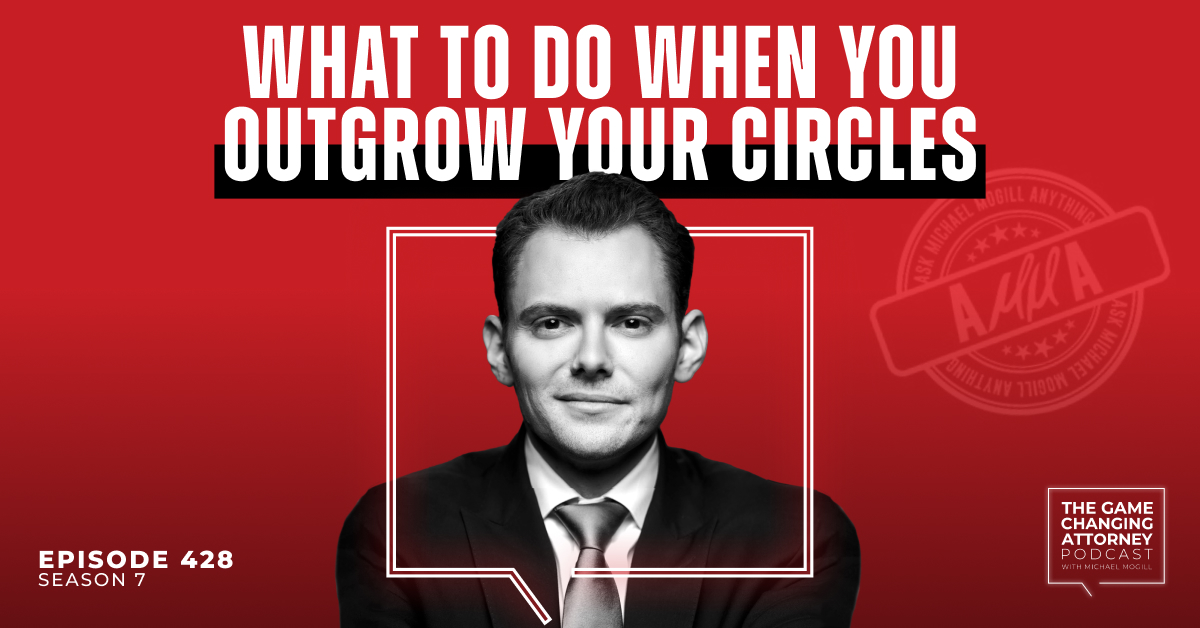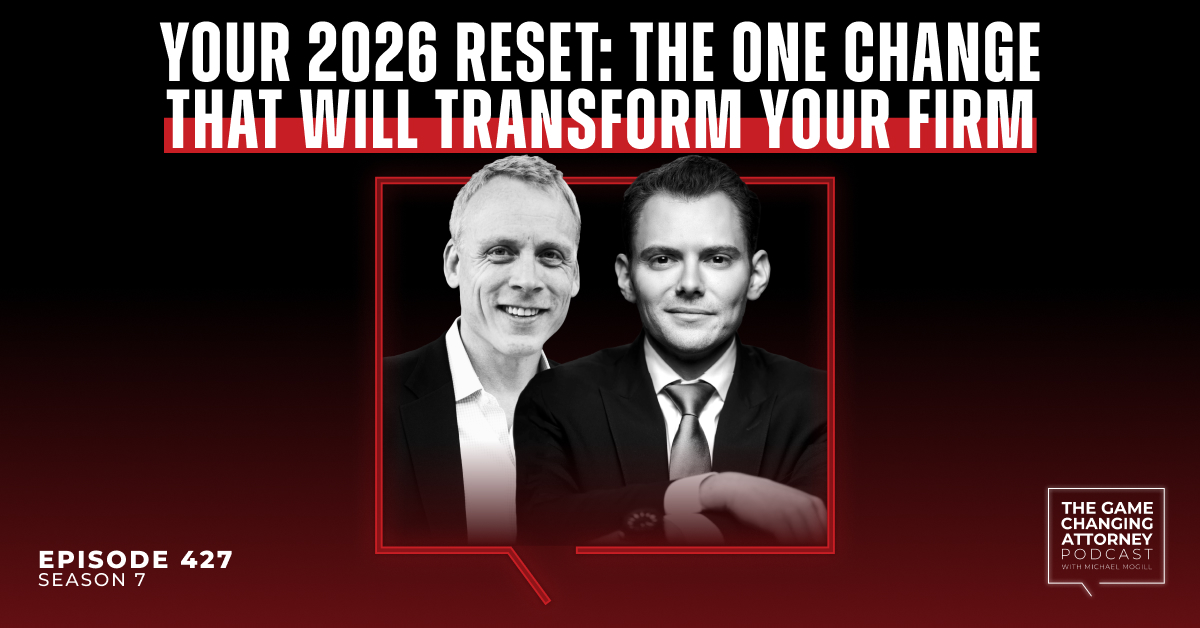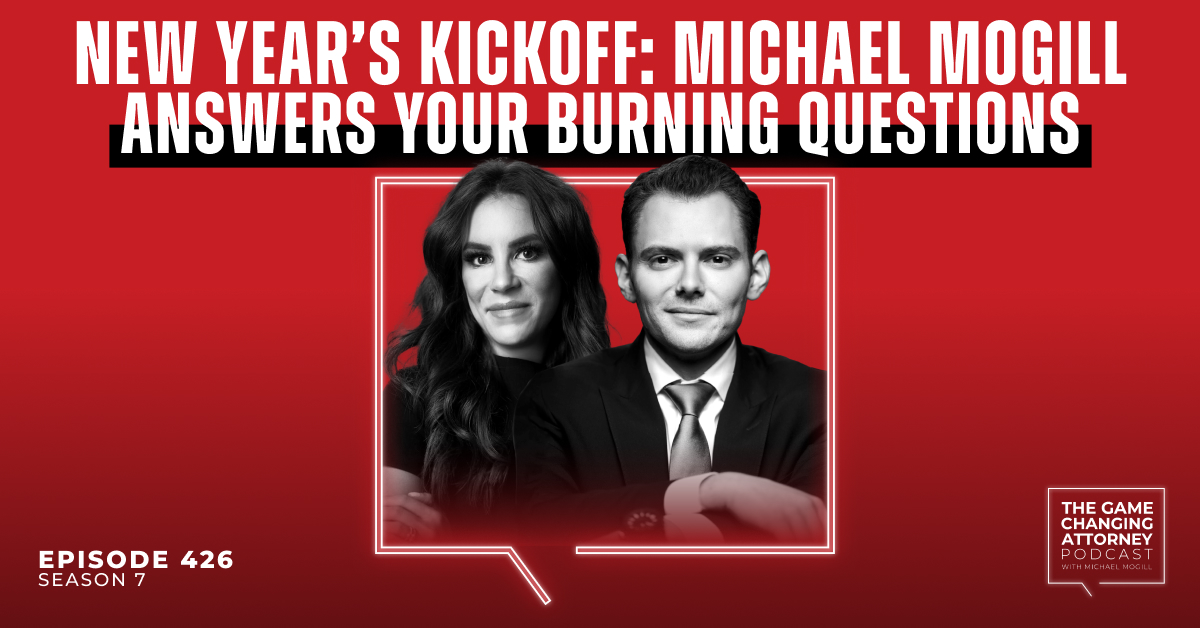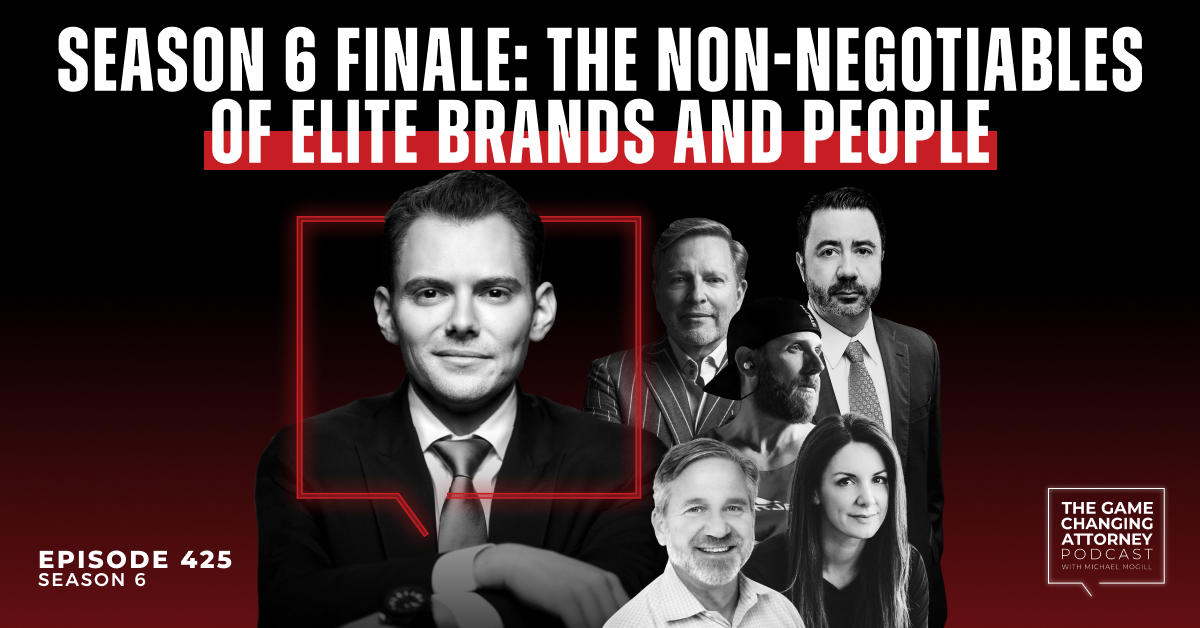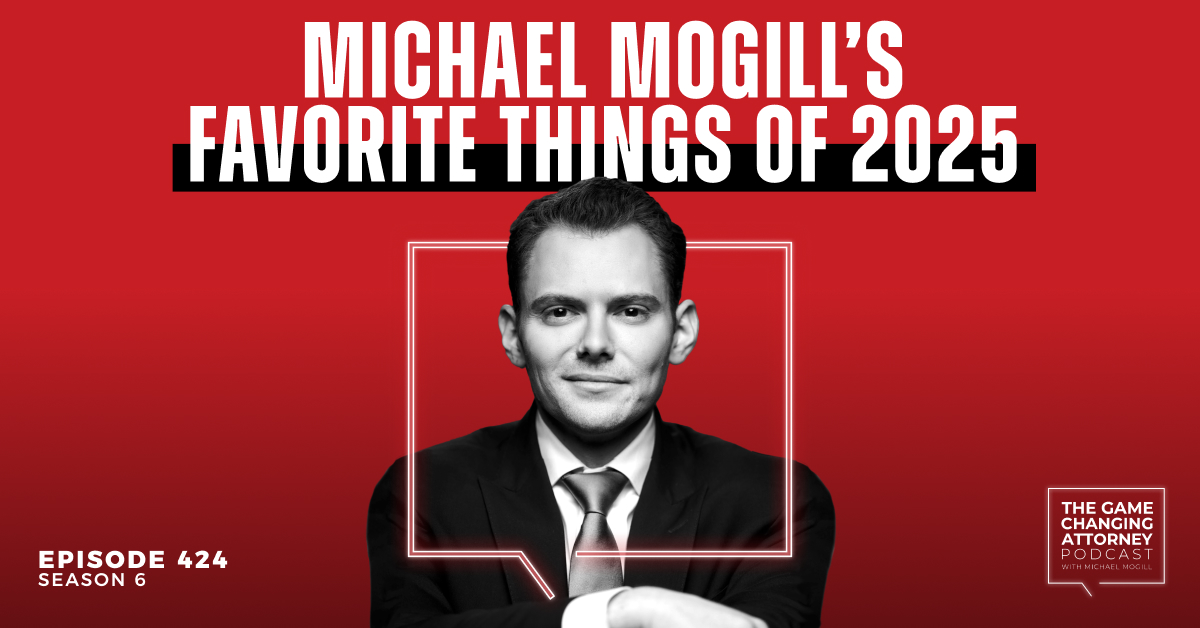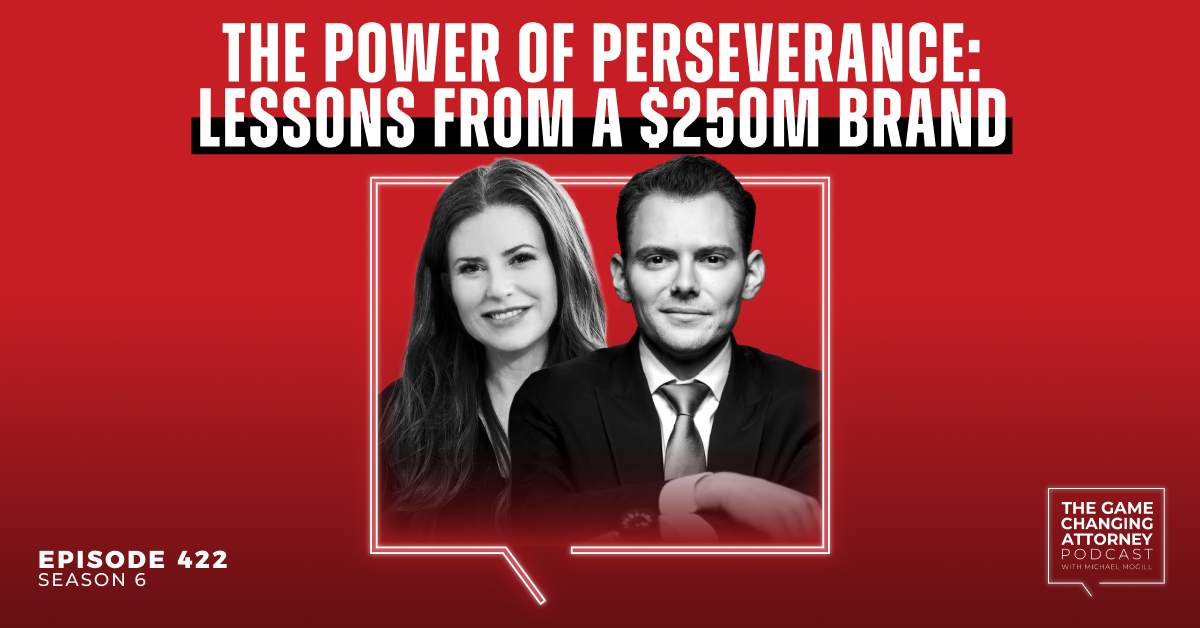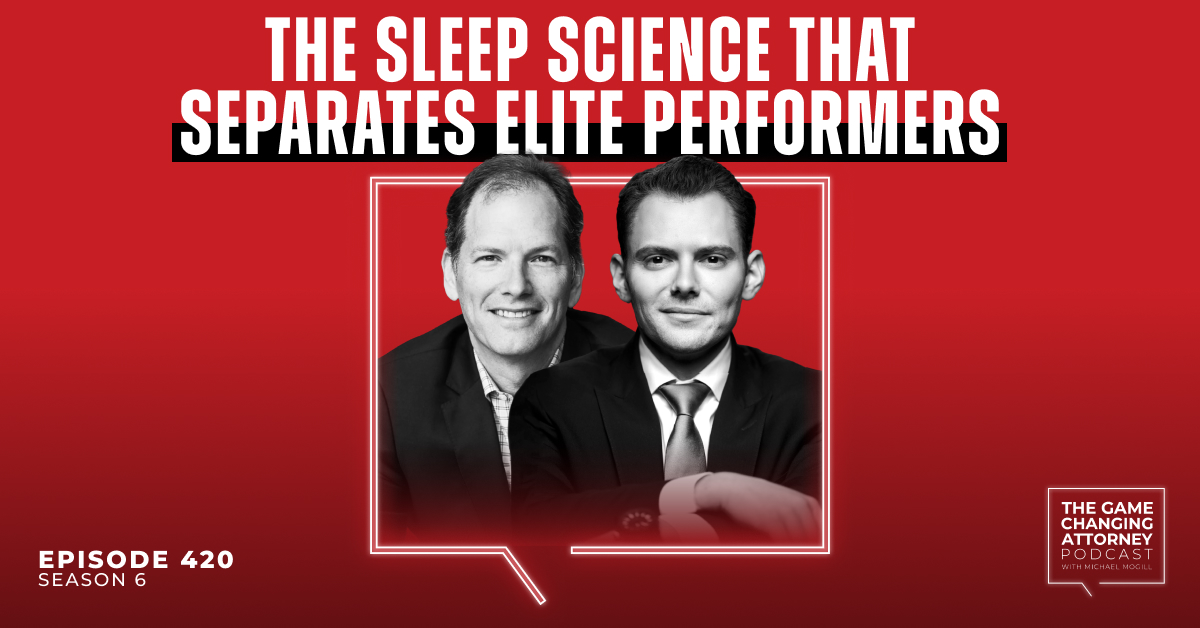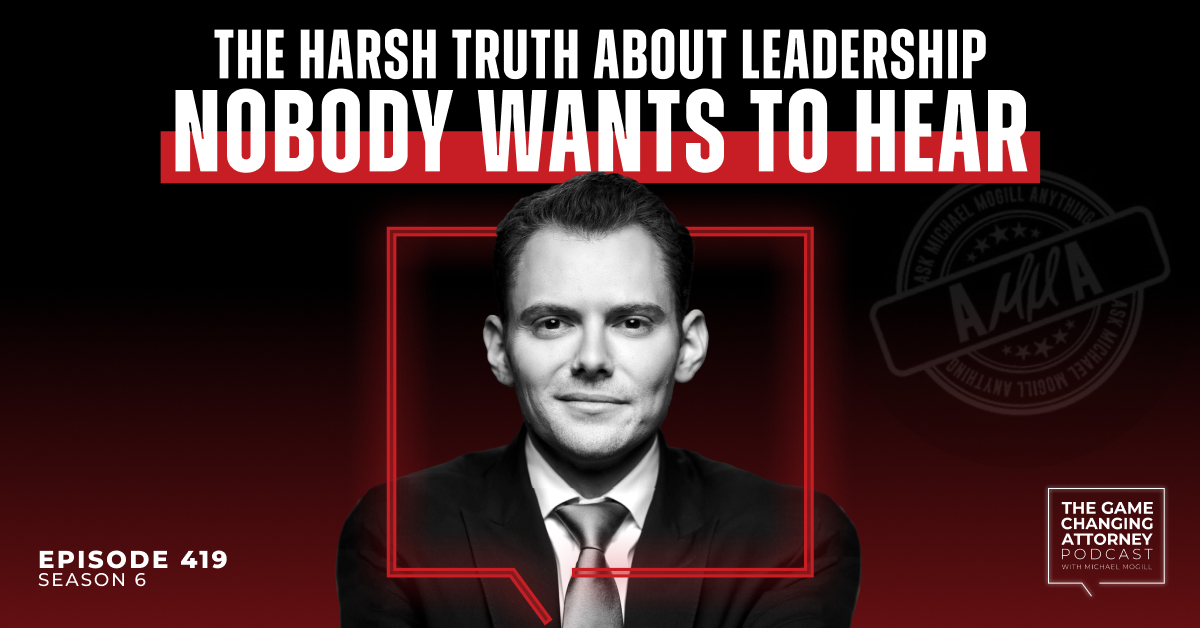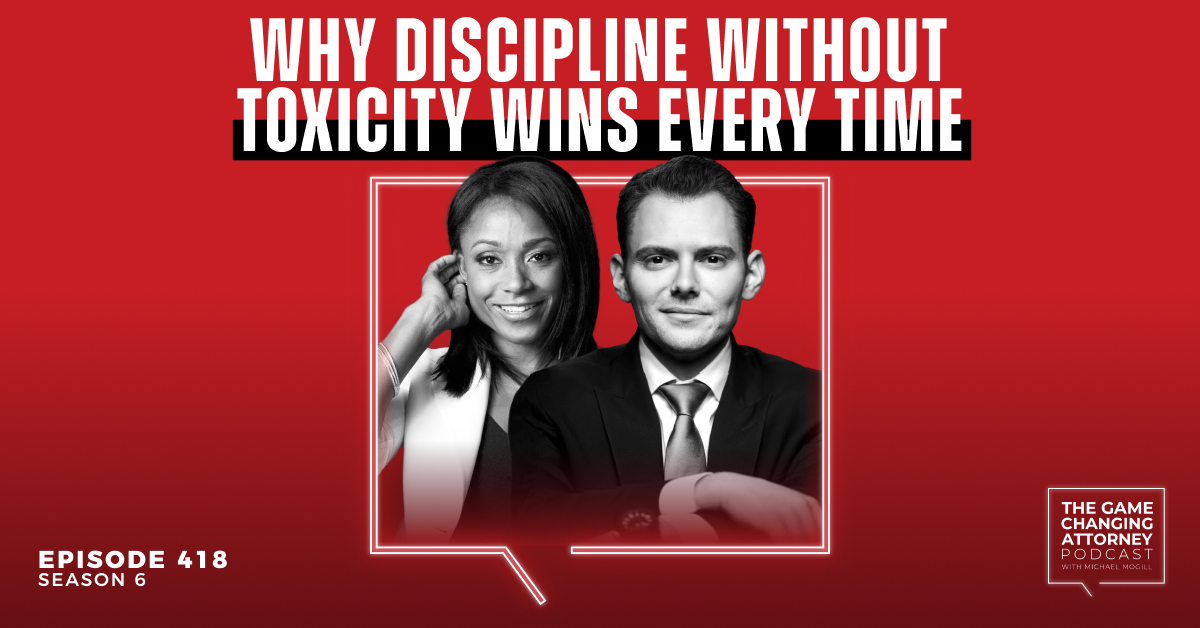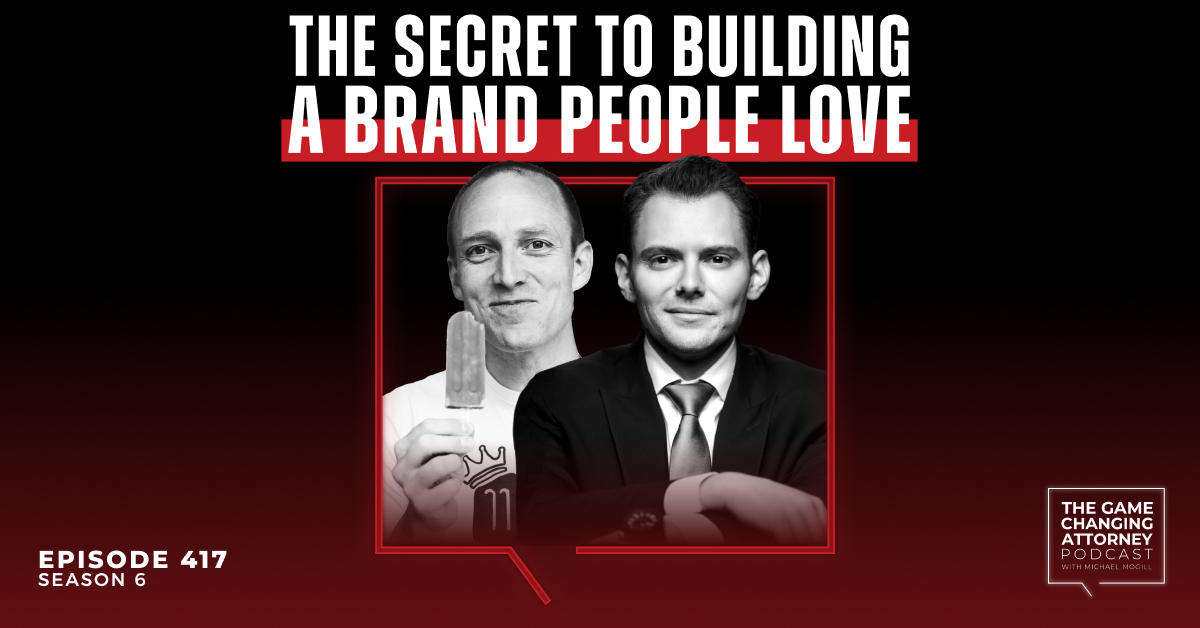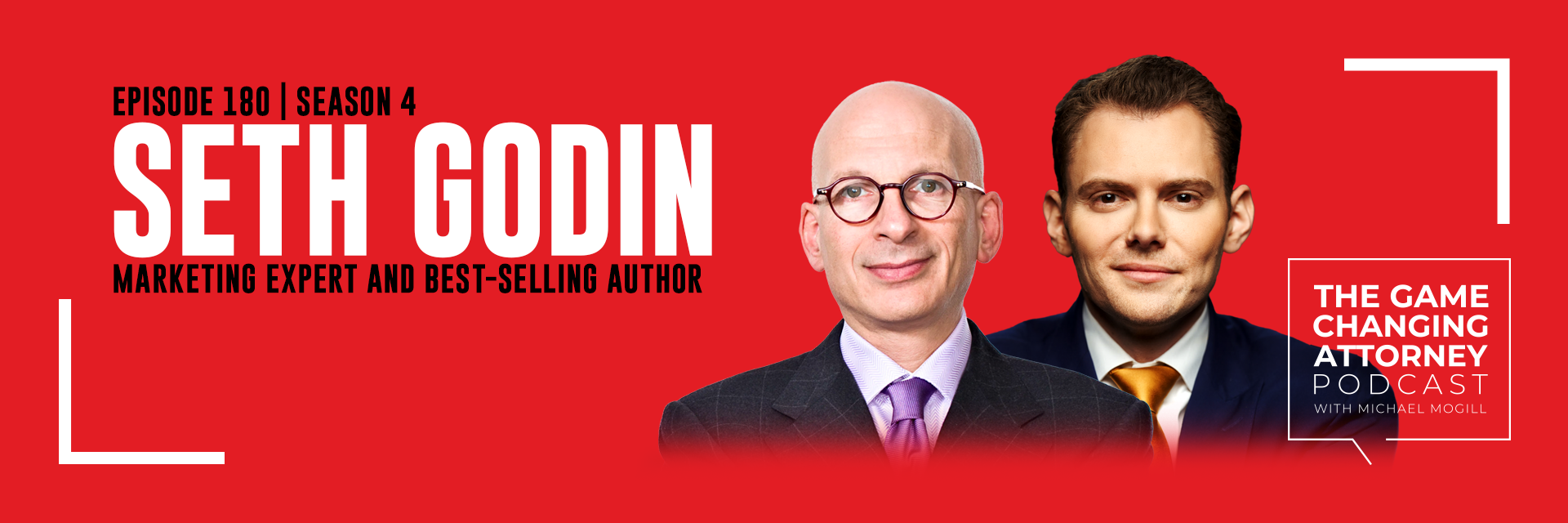
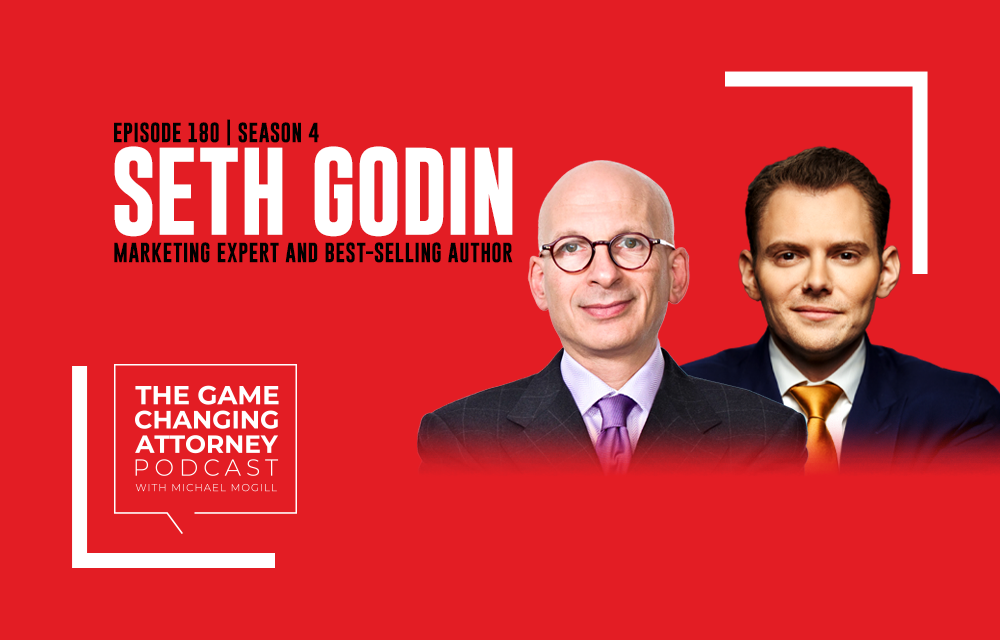
Episode 180 — Seth Godin — Putting Your Best Work Out Into the World
Seth Godin is an entrepreneur, best-selling author, speaker, and — most of all — a teacher. His focus ranges widely, from effective marketing and leadership to the spread of ideas and changing everything. As the author of 20 international best-sellers that have been translated into more than 35 languages, Seth has motivated and inspired countless people around the world.
In this episode of The Game Changing Attorney Podcast, this revolutionary thinker explores why passion isn’t enough, why training should be quality over quantity, and how to be extraordinary in a world of average lawyers practicing average law.
He and Crisp Founder & CEO Michael Mogill explore questions such as:
- What is the “infinite game,” and why is playing it the ultimate goal of life?
- Why is repeated failure a strong indicator of success?
- What is the dangerous scarcity mindset, and how can you escape it?
- How can a non-competitive mindset help your business?
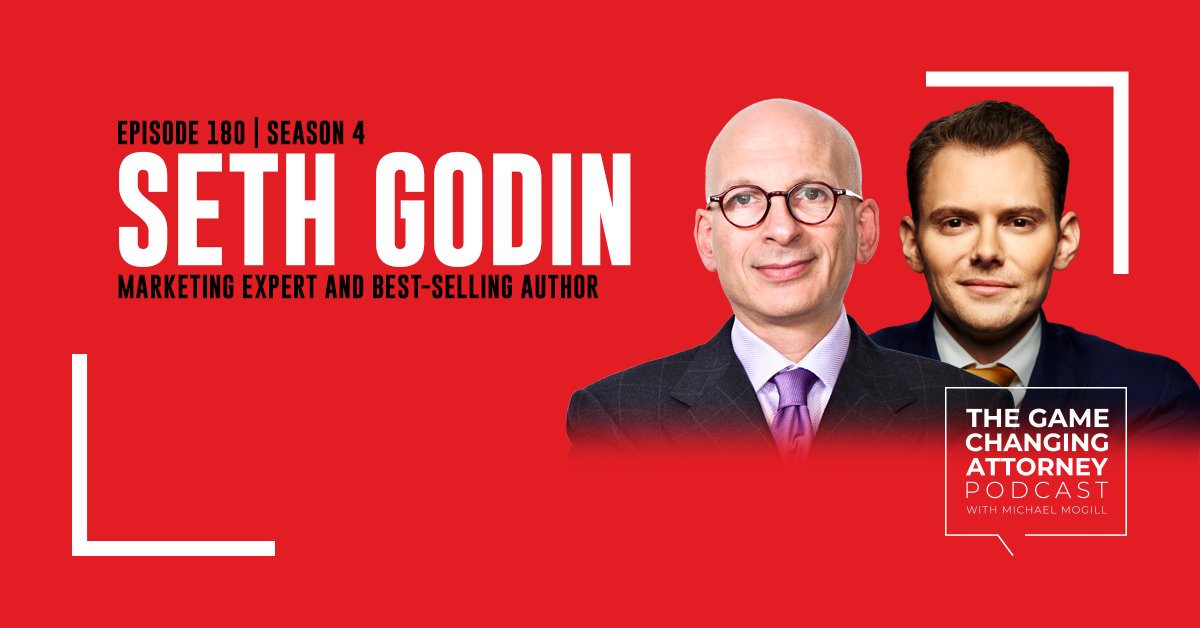
Listen & Subscribe
Show Notes:
Solving interesting problems. “When you think about the highlights of a career — whether you’re a lawyer, an accountant, an executive, or somebody who’s an elementary school teacher — they are always about solving interesting problems. That is where our highlights lie. What does it mean for a problem to be interesting? It means it’s never been solved this way before. It means there’s no guaranteed answer. It means that you can’t look up the answer on Wikipedia because if you could, A) it’s not interesting, and B) someone is going to do it cheaper than you.”
Good decisions vs. good outcomes. “Think really hard over the last six months about a good decision you made. Is that a good decision? Did it lead to a good outcome? And the answer is always, ‘yes.’ People will always say yes. Well then, that’s not really a good decision. That’s just a good outcome. You got lucky. A good decision is a good decision even if it doesn’t work out, because what it means to make a decision is to look at the available data, the probabilistic curve, and say, ‘Based on who I am, what I know, and where I’m going, what is the best choice?’ Regardless of how the dice, regardless of how the cards, regardless of how the world turns out, it’s still a good decision. The reason that this is so important is because if we become outcome-focused, we develop bad habits by repeating bad decisions because in the past they’ve worked out for us.”
A hoarding mindset. “We get hooked on this mindset of hoarding, and the problem with that is that most of the things we care about and our culture, are not driven by scarcity. They’re driven by abundance. So if I have a widget factory and everyone in town comes and takes a free sample, I’m going to go out of business. But if I have an idea and everyone comes and takes a free sample, I’m rich because I get to keep the idea and now the idea has gone up in value. So we have to shift gears and think hard about, ‘How do I contribute to this culture? How do I earn trust?’ as opposed to, ‘How do I approach a scarcity mindset and create distrust?’”
Talent vs. skill. “Talent is something you are born with, and there are almost no talents that are important in the modern economy. I would argue that I can’t slam dunk a basketball on a regulation NBA hoop because I don’t have the talent for it because I’m only 5’7”, but almost anything else is a skill. Your DNA does not program you to be able to paint watercolors or to be able to engage with a coworker who’s upset. None of those things are talents. Those are all skills, and that’s really good news. It’s good news because skills can be learned. So we have to ‘un-indoctrinate’ ourselves. We have to ‘un-indoctrinate’ ourselves about caste, about industry, about waiting to be picked, and about doing what we’re told that was all burned into us from a young age — not necessary. Instead, we can say skills are acquirable.”
Having empathy for your audience. “There are lots of ways to fail. One way to fail is to insist that everybody get your joke, to insist that you are entitled to a commission for your symphony, that you are entitled to have a standing ovation for the work you just did, that you’re entitled to win your case before the Supreme Court. You’re not entitled. It doesn’t come with any guarantee. Part of what it is to be a professional, to do this creative art, is to have empathy for the audience, to say, ‘They might not know what they want, but I have a hunch that this is going to resonate with them’ — and that distinction is super important.”
You must niche down. “If you don’t focus on a smaller, more viable audience, how are you going to grow your business? If you don’t do that, then you’re making average law for average people, and average law for average people would be fine if you were the only average lawyer in town, because there are a lot of average people in town. But you are not the only average lawyer in town. In fact, almost every lawyer is an average lawyer. So if I can’t tell the difference between Lawyer A and Lawyer B, why would I pick you and why would I not want you to be cheaper?”
Imposter syndrome is a compass. “Imposter syndrome means you’re on the right path. Imposter syndrome is a compass. Imposter syndrome is what you feel when you are doing something that hasn’t been done before, are solving an interesting problem, and are self-aware enough to know you’re going to have to dig in and work even harder at it. If you’re not feeling imposter syndrome, one of two things is true: either you’re a sociopath, or you’re not trying hard enough. And if you try hard enough, if you lean out of the boat enough, you start feeling it. Now you know you’re onto something.”
Desirable difficulty. “What we know about flow and passion is that we almost never feel them when we are doing something by rote. If it’s easy, much of our brain disappears. We also know that if it’s too hard, if it’s too challenging, then we give up and we get frustrated. But right in between those two is a place for joy, and that joy comes from doing something just a
little bit harder than we expected, just a little bit scarier than we signed up for. And if you are lucky enough to be your own boss or in a situation like that, it’s on you to create an environment where you are slowly turning that dial.”
You decide your future. “It really comes down to what you decide about who you are and where you are going — and that decision is reflected in which firm you join, which people at the firm you hang out with, who you are seeking to impress, who you are walking away from, and which clients you pick. So when you’re struggling at 25 and you take a shyster client, well, that’s the kind of lawyer you’re going to become, and you might never recover from that. I think we have to make a real commitment early and often about what we do, what we know, how we know it, and how we’re measuring ourselves.”
Misclassified strengths. “If someone says to you when they’re 10 years old, ‘I am bad at math,’ what they’ve actually said is, ‘I’ve had bad math teachers.’ Nobody is bad at math. Nobody. We often give up on things for the wrong reason because they’ve been misclassified, and figuring out what we are great at is much more about an emotional spectrum than it is about the actual content of the thing involved. So if someone says, ‘I am great at oil painting, but I can’t possibly do a good job as a teacher,’ I’m not buying that.”
Trusting yourself. “What does the phrase ‘trust yourself’ even mean? Who’s doing the trusting and who is the self? When you talk to yourself, who’s talking and who’s listening? I’m arguing that we do have two selves. We have the self that’s verbal, negative, and afraid, and we have the self that doesn’t do well with words but believes in possibility and has a spark. If we can learn to trust that voice and then add the other stuff to it, we can make great stuff happen. And I guess my argument is, you don’t get confidence because it worked. You get confidence because you commit to a practice.”
What does being a game changer mean to you? “It’s not called ‘The Game Playing Attorney,’ right? What it means to be a game player is that you accept the rules as written and you do your best to win. To be a game changer is to say, ‘I’m going to take one step up to a new dimension and figure out how to play a different game.’ So you know, if you founded a book group inside your law firm and dealt with everybody rolling their eyes and dealt with everyone showing up late and dealt with all the status games but still got eight people in your firm to read the practice and discuss it, you would be changing the game because the law, the game of being a law firm if you don’t have a book group — well, you could change the game.”
RESOURCES & REFERENCES
Annie Duke
Wikipedia
World Poker Championship
Boston Marathon
Tahiti
Atlanta
Toyota
Bryan Stevenson
Ray Kroc
McDonald’s
NYU School of Law
Steve Jobs
Tim Cook
This is Marketing by Seth Godin
Elvis Costello
Spike Lee
Patricia Barber
The Green Mill
Swiss Army Knife
Isaac Asimov
Pablo Picasso
Samuel Beckett
Harvard
R.E.M.
Peter Buck
AOL
The Mundanity of Excellence study
Connect with Michael
- Text directly at 404-531-7691
